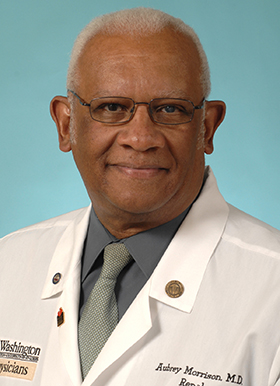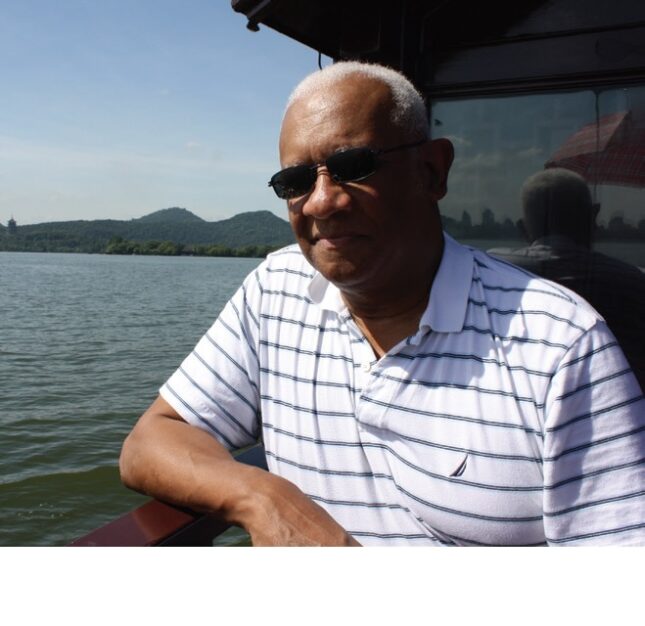
Aubrey Morrison, MBBS, MACP, FASN, Professor Emeritus, Division of Nephrology, is the recipient of the 2020 Barnes-Jewish Hospital medical staff association Lifetime Achievement Award.
Only physicians who have contributed 25 years or more of distinguished service to BJH are considered for the award. Morrison retired from the Division of Nephrology in October 2020, having been at BJH for over 45 years.
“I am both humbled and honored to receive this award and am indebted to the many peers who wrote letters on my behalf, resulting in this wonderful honor and recognition”
Born in Guyana, South America, Morrison earned his medical degree from the Royal college of Surgeons in Dublin and the University of London in 1970. He then came to WashU because of its rotating internship program and stayed to complete his residency and fellowships in nephrology (1975) and pharmacology (1978) at Barnes Hospital. He subsequently joined WashU as an Assistant Professor in the Department of Medicine on the tenure track in 1978.
A physician-scientist, Morrison became a pioneer in the study of inflammatory processes in the body. His research focused on chronic kidney disease and how cytokine proteins and prostaglandins interact to control the body’s response to inflammation, injury, or illness and resulted in major contributions to the understanding of the role that COX-2 plays in the body’s response to inflammation, as well as prostaglandin’s role in obstructive kidney disease. His finding that the kidney cortex could metabolize arachidonic acid through a NADPH-dependent pathway of cytochrome P450 was published in the Proceedings of the National Academy of Science.
In recognition of his research, Morrison was elected to the American Society of Clinical Investigation in 1982, being the first Black physician elected to the honorary society and one of only four Black men elected to ASCI pre-2000. When he was promoted to Professor of Medicine in 1987, he was the first Black faculty member at the School of Medicine to achieve a full professorship.
Unfortunately, while accomplishing his many “firsts” in his early years at WashU/BJH, Morrison also encountered racial discrimination that ranged from microaggressions to overt racism. Morrison has detailed some of his experiences with racism during his time at WashU/BJC in an article recently published in the Journal of the American Society of Nephrology: Reflections of a Naïve Trainee to Barnes Jewish Hospital/Washington University in 1970 – My First 25 Years (Jan 2021).
Benjamin Humphreys, MD, PhD, Chief of the Division of Nephrology, commented on the article: “This is a sobering and troubling account, but also a powerful first-person contribution to the conversations around anti-racism that we have been having in our Division, school and society. Thank you, Aubrey for sharing your experience. Having these painful conversations, and remembering and calling out our history, is a critical first step in building and maintaining the culture of diversity and inclusion to which we are all committed.”
“I am very grateful to Ben Humphreys for his ongoing support and encouragement, and proud to be a member of the Renal family at Washington University,” says Morrison.
In addition to the BJH Lifetime Achievement award, Morrison has been recognized with the Award of Excellence from the National Kidney Foundation of Missouri, and in 2011 was named a Master of the American College of Physicians (ACP). He was the first physician from WashU to receive the ACP’s Harriet Dustan Award for Outstanding Work in Science as Related to Medicine. From 2008-2011, Morrison served as director of the Division of Nephrology’s Renal Fellowship Training Program. In 2016, the Washington University Medical Center Alumni Association presented its Faculty Achievement Award to Morrison in honor of his distinguished service at WashU and for his outstanding contributions to advance the understanding and treatment of renal disease.
On how he is adapting to retirement, Morrison says he is “keeping busy and out of trouble!”
